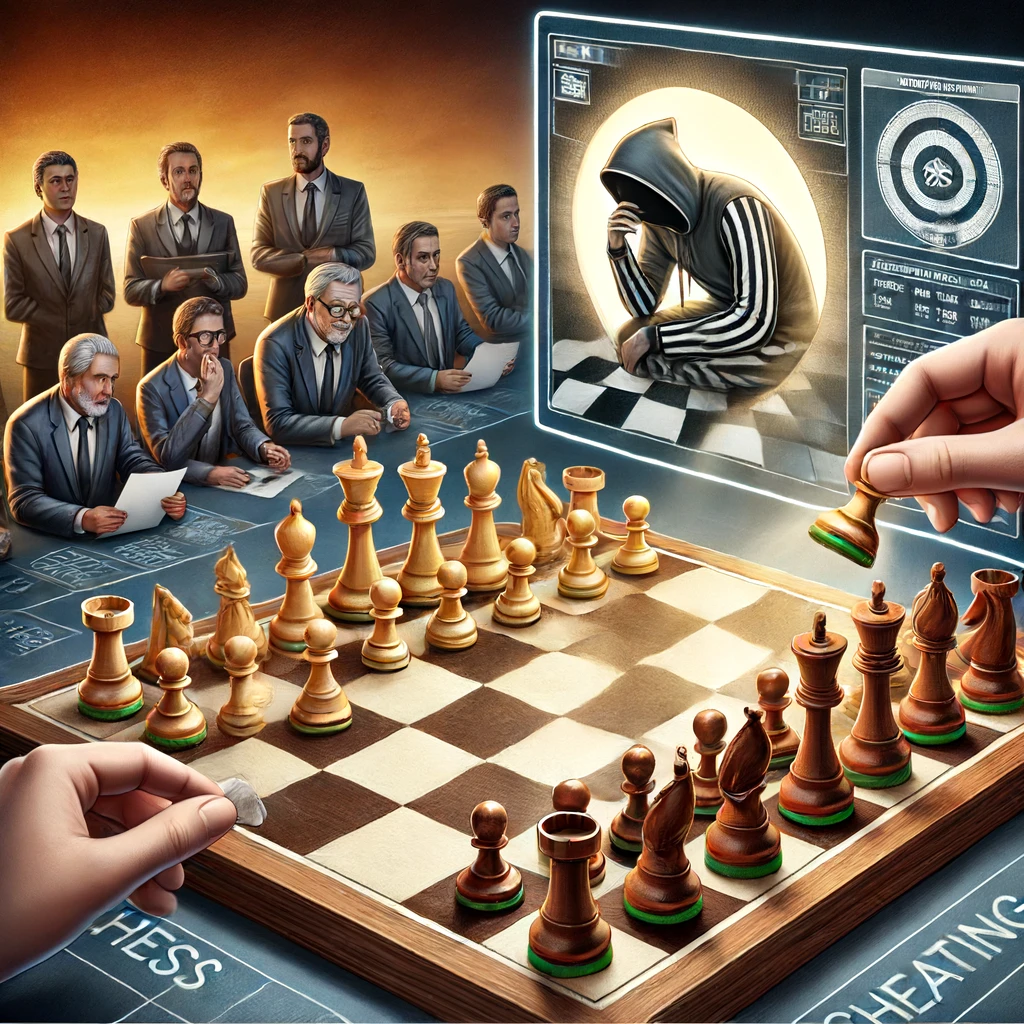
Chess, known as the game of kings, has always been revered for its emphasis on skill, strategy, and intellectual prowess. However, like any competitive endeavor, it has not been immune to the scourge of cheating. From early instances of covertly adjusting pieces to the sophisticated digital age tactics, cheating in chess has evolved dramatically. In this article, we will explore the various methods of cheating in chess, notable scandals, the impact on the game, and measures to combat this unethical practice.
Methods of Cheating in Chess
Traditional Cheating Methods
- Piece Manipulation: In physical chess matches, one of the simplest forms of cheating involves subtly moving pieces to a more advantageous position when the opponent is not looking.
- Signaling: Collaborators in the audience or even coaches have historically used hand signals, coded messages, or other subtle gestures to communicate advantageous moves to the player.
Modern Cheating Methods
- Electronic Devices: The advent of miniaturized electronics has made it possible to use hidden devices to receive move suggestions from chess engines. Players might use earphones, smartwatches, or even custom-made devices to cheat.
- Online Cheating: With the rise of online chess platforms, a significant form of cheating involves using computer programs or chess engines during online games to find the best moves.
Notable Cheating Scandals
The Toiletgate Scandal (2006)
One of the most infamous scandals in chess history occurred during the 2006 World Championship match between Vladimir Kramnik and Veselin Topalov. Topalov’s team accused Kramnik of using computer assistance during his frequent and lengthy bathroom breaks. Although no conclusive evidence was found, the incident, dubbed “Toiletgate,” sparked significant controversy and highlighted the need for stricter anti-cheating measures.
Borislav Ivanov (2013)
Bulgarian chess player Borislav Ivanov gained notoriety for his suspiciously rapid rise in the chess rankings, coupled with an unusually high level of play that mimicked the moves of a top-level chess engine. After multiple accusations and investigations, Ivanov was banned from tournaments, and subsequent searches found electronic devices hidden in his shoes.
Online Cheating During the COVID-19 Pandemic
The COVID-19 pandemic saw a massive shift to online chess tournaments, leading to a surge in cheating incidents. Notable players, including grandmasters, were caught using chess engines to gain an unfair advantage. Online platforms like Chess.com and Lichess have since implemented sophisticated anti-cheating algorithms to detect and deter cheating.
The Impact of Cheating on Chess
Erosion of Trust
Cheating undermines the fundamental principles of fair play and sportsmanship that chess stands for. When players suspect their opponents of cheating, it erodes trust and diminishes the integrity of the game.
Psychological Effects
Accusations of cheating can have severe psychological effects on players, including stress, anxiety, and a diminished sense of accomplishment. Players who are falsely accused may also suffer damage to their reputations and careers.
Impact on the Chess Community
Cheating scandals often lead to divisiveness within the chess community. Debates over the validity of accusations and the severity of punishments can create rifts among players, organizers, and fans.
Measures to Combat Cheating
Technological Solutions
- Anti-Cheating Software: Online chess platforms have developed advanced algorithms to detect unusual move patterns that resemble computer-generated moves. Players found cheating face bans and other penalties.
- Metal Detectors and Signal Jammers: In over-the-board tournaments, organizers use metal detectors to prevent players from bringing electronic devices into the playing area. Signal jammers can also be employed to block electronic communications.
Increased Surveillance
- Cameras and Monitors: High-level tournaments often feature extensive video surveillance to monitor players’ behavior and movements. This can deter cheating and provide evidence in case of suspicious activities.
- Arbiters and Officials: Trained arbiters and officials are crucial in ensuring fair play. They can intervene if they observe any suspicious behavior and have the authority to search players and their belongings if necessary.
Strict Penalties
- Bans and Suspensions: Players caught cheating face severe penalties, including lengthy bans from tournaments and online platforms. These penalties serve as a deterrent to would-be cheaters.
- Public Disclosure: Naming and shaming cheaters can act as a strong deterrent. Publicly disclosing the names of players caught cheating highlights the consequences of unethical behavior.
Education and Awareness
Promoting a culture of fair play and integrity is essential in combating cheating. Educating players, coaches, and organizers about the importance of honesty in chess can help foster a community that values and upholds the principles of the game.
Conclusion
Cheating in chess is a complex and evolving challenge that threatens the integrity of the game. From traditional methods to modern technological tricks, cheaters have continually sought ways to gain an unfair advantage. However, through technological advancements, stringent regulations, and a commitment to fair play, the chess community can combat cheating and preserve the noble spirit of this timeless game. By fostering a culture of honesty and integrity, chess can continue to be a true test of skill, strategy, and intellect.